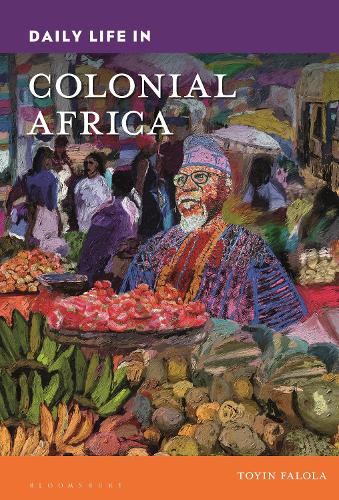
Daily Life in Colonial Africa
(Hardback)
Publishing Details
Daily Life in Colonial Africa
By (Author) Dr. Toyin Falola
Bloomsbury Publishing PLC
Bloomsbury Academic
5th September 2024
United Kingdom
Classifications
Primary and Secondary Educational
Non Fiction
Reference, Information and Interdisciplinary subjects
Colonialism and imperialism
960.3
Physical Properties
Hardback
280
Width 162mm, Height 238mm, Spine 22mm
620g
Description
During the 19th century, European colonization in Africa dramatically altered the African continent and the lives of African people. As the major powers of Europe met in Germany in 1884 and 1885 to divide Africa between them, they claimed for themselves vast and invaluable reserves of natural resources, including timber, gold, diamonds, ivory, and rubber. For decades afterward, France, England, Germany, Belgium, and other European countries colonized African lands, extracting billions of dollars worth of material goods for sale abroad, and oppressing millions of Africans under colonial rule. In this addition to the Daily Life through History series, Toyin Falola, a preeminent scholar of African history, walks readers through the many and complex ways that colonialism effected the daily lives of Africans across the African continent. European Christian missionaries converted millions to a new faith, disrupting spiritual practices and sacred traditions much older than the Christian church itself. Farmers who had once planted only what they needed to sustain themselves and their communities began harvesting new cash crops, including cotton and cocoa. The radical reconstruction of local African politics shifted power from traditional leadership to centralized governments overseen by foreigners. Yet despite new challenges and hardships, Falola shows how many everyday Africans adapted to new ways of life, resisting colonial intrusion for decades until gaining their independence in the 20th century.
Author Bio
Toyin Falola is Professor of History, University Distinguished Teaching Professor, and the Jacob and Frances Sanger Mossiker Chair in the Humanities at the University of Texas at Austin, USA.
